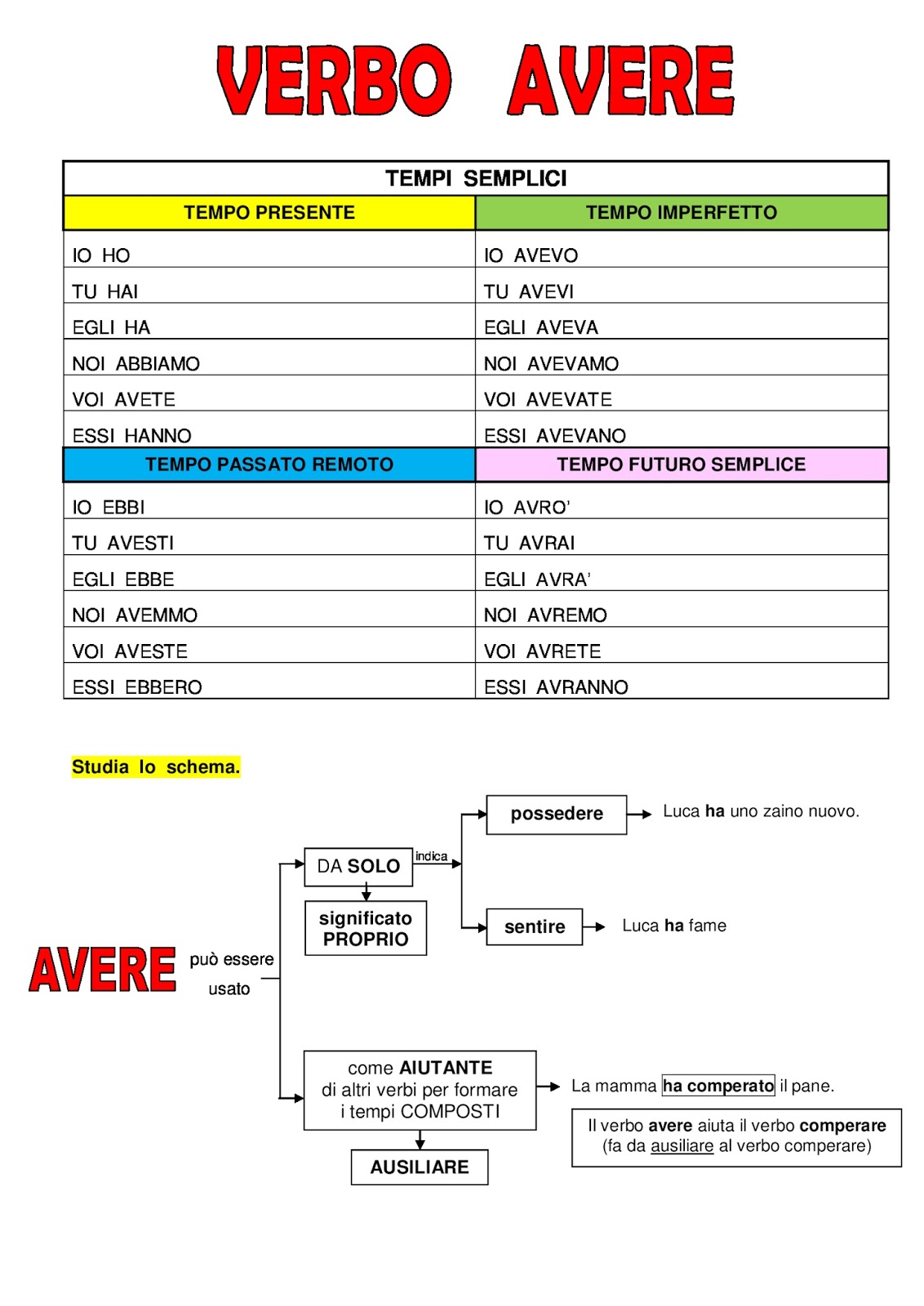The Italian language is rich, expressive, and filled with nuances that can perplex even the most ardent learners. Among its many verbs, "essere" and "avere" stand out as fundamental components of Italian grammar. These two verbs are not just mere words; they are the building blocks of countless sentences and expressions, shaping the way we convey thoughts, feelings, and actions. Understanding how to use "essere" and "avere" correctly is paramount for anyone looking to communicate effectively in Italian.
In Italian, "essere" translates to "to be," while "avere" translates to "to have." Their significance transcends simple definitions, as they are used in various grammatical structures, including compound tenses and expressions. Mastering these verbs is crucial for constructing sentences that reflect reality, possession, and existence. In this article, we will explore the intricacies of "essere" and "avere," examining their uses, conjugations, and importance in the Italian language.
Delving deeper into "essere" and "avere" not only enhances your language skills but also enriches your understanding of Italian culture and communication. By the end of this exploration, you will gain clarity on how to effectively incorporate these verbs into your conversations and writings, paving the way for more fluent and confident Italian expression.
What is the Role of Essere and Avere in Italian Grammar?
Essere and avere are categorized as auxiliary verbs, which means they help form compound tenses in Italian. While "essere" typically indicates movement or a change of state, "avere" is often associated with possession or actions completed. Understanding their roles is essential for mastering the Italian language.
How Do You Conjugate Essere and Avere?
Conjugation is pivotal when using "essere" and "avere." Here’s a brief overview of their present tense conjugation:
- Essere:
- Io sono (I am)
- Tu sei (You are)
- Lui/Lei è (He/She is)
- Noi siamo (We are)
- Voi siete (You all are)
- Loro sono (They are)
- Avere:
- Io ho (I have)
- Tu hai (You have)
- Lui/Lei ha (He/She has)
- Noi abbiamo (We have)
- Voi avete (You all have)
- Loro hanno (They have)
When Should You Use Essere Instead of Avere?
Knowing when to use "essere" and "avere" depends on the context of the sentence. "Essere" is typically used with verbs that indicate movement or change, while "avere" is used for actions that reflect possession. For instance:
- Essere: "Sono andato al mercato" (I went to the market).
- Avere: "Ho un libro" (I have a book).
What Are Some Common Expressions with Essere and Avere?
Expressions in Italian often rely on "essere" and "avere." Here are some popular phrases:
- Essere:
- Essere in forma (To be in shape)
- Essere d'accordo (To be in agreement)
- Avere:
- Avere fame (To be hungry)
- Avere sonno (To be sleepy)
Can You Form Compound Tenses with Essere and Avere?
Absolutely! Both "essere" and "avere" serve as auxiliary verbs to form compound tenses. For example:
- With "essere": "Sono andato" (I have gone).
- With "avere": "Ho mangiato" (I have eaten).
What Are the Differences Between Essere and Avere in Various Tenses?
The distinctions between "essere" and "avere" extend beyond the present tense into the past, future, and subjunctive moods. For instance:
- Past Tense:
- Essere: "Sono stato" (I have been).
- Avere: "Ho avuto" (I have had).
- Future Tense:
- Essere: "Sarò" (I will be).
- Avere: "Avrò" (I will have).
What Challenges Do Learners Face with Essere and Avere?
Many learners struggle with the nuances of using "essere" and "avere." These challenges can include:
- Understanding which verbs take "essere" or "avere" as auxiliary verbs.
- Confusing the conjugations in different tenses.
- Using the correct form in idiomatic expressions.
How Can You Practice Using Essere and Avere Effectively?
Practicing "essere" and "avere" can be achieved through various methods:
- Engaging in conversation with native speakers.
- Writing sentences using each verb in different tenses.
- Utilizing language learning apps that focus on verb conjugation.
Conclusion: Why Are Essere and Avere Essential for Learning Italian?
In summary, "essere" and "avere" are foundational elements of the Italian language, serving as key components in communication. Mastering these verbs opens the door to forming complex sentences and expressing ideas clearly. As you continue your journey of learning Italian, focusing on the usage of "essere" and "avere" will undoubtedly enhance your fluency and confidence in speaking the language.
Article Recommendations
- Alice Cooper Denver
- Heather Carnahan
- Fig Plant Indoor
- Watch Hunter Hunter Phantom Rouge
- Ben Harper
- Brigitte Macron Young
- Midwife And The Baker
- Third Eye Blind Songs
- How To Clear An External Hard Drive
- Mindy Mccready Sons Today 2024
Also Read


